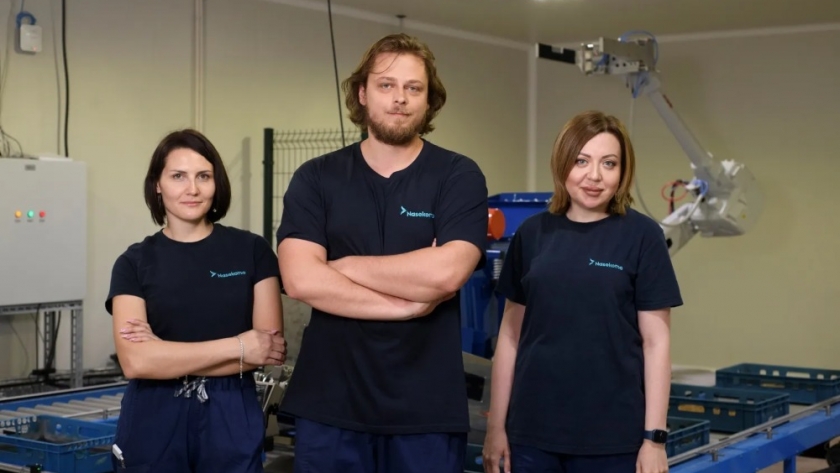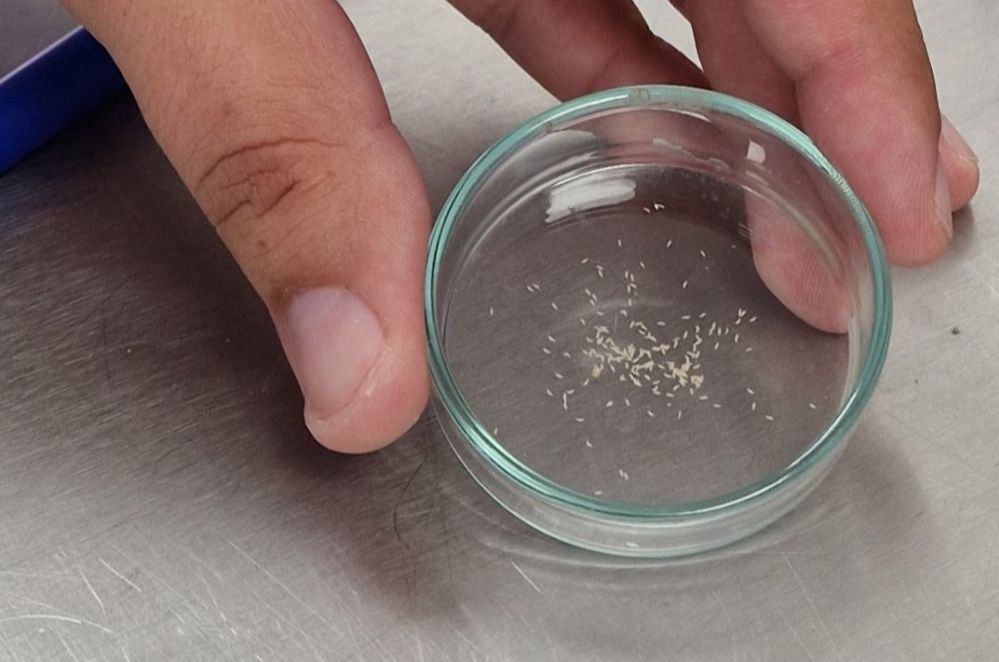
By Agroempresario.com
Bulgarian insect agriculture pioneer Nasekomo is set to transform the industry with its latest innovation: a neonate delivery service for black soldier fly larvae that maintains the tiny creatures in a state of suspended animation for up to 10 days without refrigeration. This groundbreaking approach is poised to alleviate logistical challenges and ensure a reliable supply for insect protein producers.
CEO Marc Bolard revealed to AgFunderNews that the suspended larvae, upon reaching an insect protein production facility, boast a 95% recovery rate when reactivated on feedstock, showing superior growth performance compared to non-suspended neonates. “Our technology eliminates the need for low-temperature storage during transit, streamlining the supply chain and providing a stable larvae supply for producers,” Bolard explained.

Nasekomo, which has partnered with French animal genetics firm Groupe Grimaud under the Fly Genetics initiative, focuses on advanced genetic selection to produce larvae with enhanced growth rates, feed conversion efficiency, and resilience. “These genetic advancements give producers a competitive edge, enabling higher yields and more sustainable operations,” Bolard noted.
Beginning in September, Nasekomo will expand its neonate delivery service through a dedicated online portal, allowing insect farmers to order both suspended and non-suspended larvae. “Our genetically superior neonates, combined with Fly Genetics and our innovative suspension technology, offer significant improvements in growth performance and efficiency,” Bolard added.
The process of inducing suspended animation involves placing larvae on a proprietary substrate, a method that Bolard claims represents a significant innovation. “The substrate content and the overall environmental conditions during hatching and packaging are crucial. Our research has optimized these factors to effectively slow down the larvae’s metabolism,” he said.
Nasekomo has already dispatched neonates to nearly 100 customers and received positive feedback. The company aims to extend its delivery service to a broad spectrum of businesses involved in insect protein production, aquaculture feed, and other sustainable food sectors.
Bolard emphasized the necessity of automation and data-driven approaches in large-scale insect farming. Nasekomo is collaborating with Siemens to develop a standardized bioconversion system. The company plans to leverage a franchise model to scale its technology, with its first franchise partner set to open a facility in Bulgaria in 2025.

“Our role as a franchisor is to equip partners with everything needed to operate efficiently—from young insects and facilities to AI-driven solutions for real-time process monitoring,” Bolard explained. While franchisees are ideally located near consistent feed sources, Nasekomo is also engaging with waste processors and agricultural conglomerates.
“We’re exploring partnerships with green investors, waste managers, and food and beverage suppliers interested in developing a circular economy,” Bolard concluded. “Our goal is to enable growth and sustainability in the insect farming industry through innovation and strategic collaboration.”
